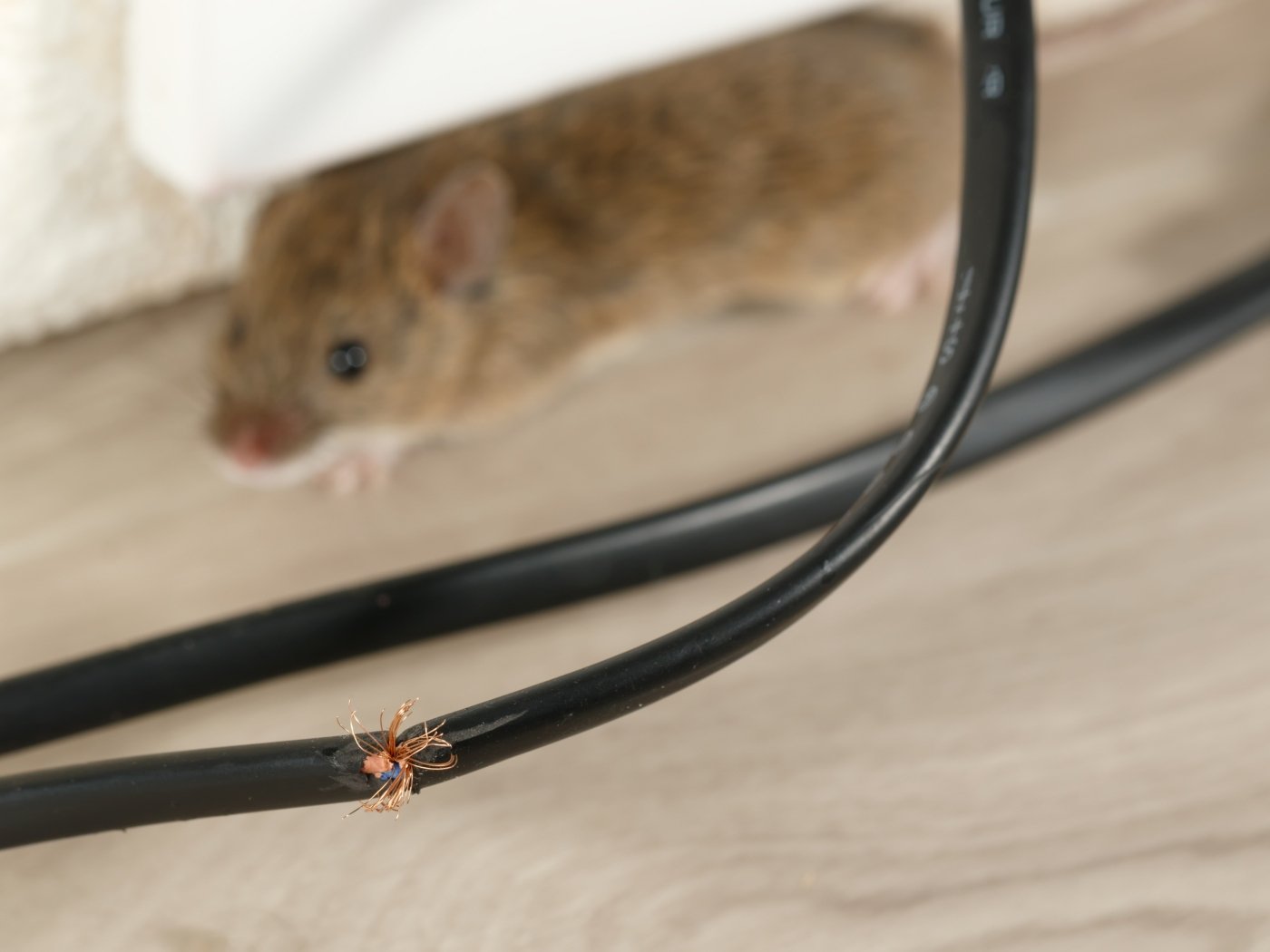Oh rats! I think rodents are chewing my cable…
You should not underestimate the health and safety risk posed by rodents…
Flickering lights, burning smells, singed wiring accessories – if you are called out on a job for any of these reasons, it is worth checking to see if rodents are behind the issues. Why? There is a good chance they have been chewing on the cables.
If there is evidence of rodents in the property, then this is not good news. Rats pose a serious health risk, spreading diseases such as Leptospirosis (Weil’s Disease) which can be contracted following contact with urine from infected rats. They can also pose an electrical safety risk. When searching for food or shelter, rats may choose homes and buildings, scurrying through voids between walls, beneath floors and inside lofts. Although rats are often to blame, mice and squirrels are also as guilty. Rodents have sharp teeth which can pierce the PVC outer sheath and the inner insulation even exposing live conductors in the cable.
This can also result in loose connections arc faults causing those burning smells. Exposed conductors can also lead to a short circuit, which can not only cause lights to flicker but lead to other issues such as damage to appliances. A short circuit can also cause electrical burns and even increase the risk of electrical shocks.
In the worst-case scenario, an arc fault can start a fire, especially if it comes into contact with flammable materials such as dry paper, card and wood. It is rumoured that around 20-40% of unexplained house fires in the UK are caused by rodents – though the source of this number is unclear.
Common signs of a rodent problem
Obviously, the clearest sign that that rats have been chewing cable are bite marks on the cable sheath, potentially leaving insufficiently insulated live conductors exposed. Other indicators include footprints and grubby marks where the rodent has rubbed against the floor and walls leaving dirt and oil from their fur. A significant tell-tale sign is the presence of droppings, typically 1-2cm long. If fresh, they will be dark brown in colour, while older droppings tend to be off-white and dusty.
So why do rodents chew on cables?
There is some speculation as to why rodents chew on cables, the most common theory being that they need to maintain their dental health. Rodents’ teeth continuously grow, similarly to human nails, so they instinctively gnaw on things they find in their territory such as cables to help keep their teeth short and sharp. Another theory is that these cables are close to their nests, so they may chew away at the cables to get materials to add to their nest.
Taking precautions
Rodents will always find a way of entering our homes, so is there a way to protect cables? Cable containment such as conduit or trunking can reduce cable damage by rodents but may not stop them from chewing it. Copper naphthenate, a byproduct of oil refining, was sometimes added to the PVC compound in the cable sheath. However, it would cause some side effects in humans such as dizziness and respiratory irritation and so it was rarely used.
Whilst preventative measures can be taken to reduce the risk of rodent damage to electrical cable, it is important to remember that if there is a rodent infestation in the building the landlord or owner should notify pest control to tackle the problem. Damaged cables may need to be replaced following an inspection of the affected circuit – a job for a qualified electrician.



